From the ‘big lie’ to the big fight, civil rights leaders are sounding the alarm this summer for as long as it takes for voting rights legislation to move in the U.S. Senate. The White House remains very concerned about voting rights as the West Wing becomes a revolving door for meetings with advocates in the fight.
Friday afternoon, President Joe Biden, Vice President Kamala Harris and staffers listened to what was happening on the ground from Black women voting rights activists who represented their respective groups in overflow numbers at the wooden conference table of the Roosevelt Room.
President Biden had dipped into the meeting which was hosted by Vice President Harris in the Roosevelt Room, and included a guest list of some of the most notable Black women’s groups in the voting rights arena.
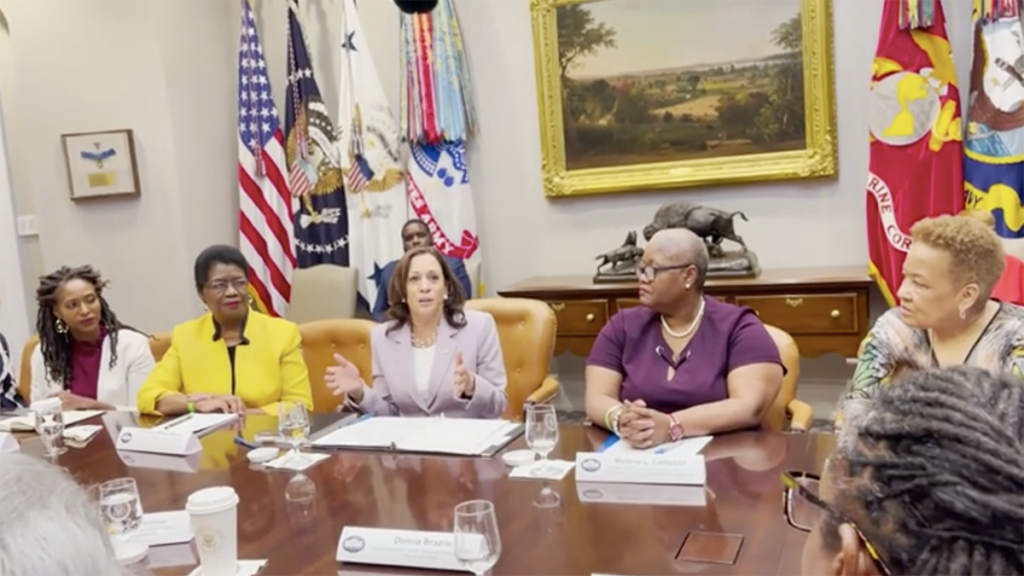
A staffer said the president was glad the women were there and that his second in command Harris took the lead. America’s first Black and woman vice president compared the civil rights leaders to historic figures like Fannie Lou Hamer, Ida B. Wells and others.
“These are the modern versions of those great women,” said Vice President Harris. “All Americans have the blessing and the benefits of standing on their shoulders.”
The White House is said to be serious about voting rights and trying to build momentum by continuing its efforts to bring national attention to controversial voting bills passed by Republicans in over a dozen states. The White House has pledged to use the bully pulpit of the Oval Office to push Congress toward passing crucial legislation of its own to circumvent the restrictive state laws conservatives have proposed.
One of the attendees described President Biden as seemingly not wanting to leave as he felt the energy in the room.
Representative Joyce Beatty, the chair of the Congressional Black Caucus, was one leader on the voting rights front missing from the meeting. She was not physically present due to her trip in California with House Speaker Nancy Pelosi to christen a navy ship named in honor of the late civil rights icon Rep. John Lewis. Beatty was one of the 10 Black women arrested Thursday in the Hart Senate Office Building.
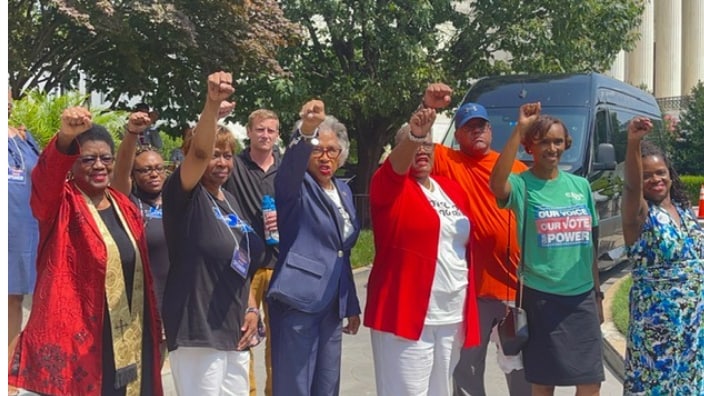
Cora Masters Barry was with Congresswoman Beatty and others during Thursday’s civil disobedience on the Hill.
Masters Barry, the former wife of the late D.C. mayor Marion Barry, acknowledged all options are on the table in the fight for access to the ballots to include calling out the current state of voting rights in the United States as a human rights issue.
Vice President Harris highlighted the global implications of assaults on fair and free elections in the U.S. She acknowledged German Chancellor Angela Merkel spoke with her at the vice president’s residence this week on the issue of voting rights.
“Our right and responsibility is to fight for our democracy and fight for our rights every day of the week,” she said in response to theGrio’s question. “This is a fight for all people regardless of who they voted for in the last election or who they vote for in the next election.”
Already, the Biden administration’s National Security Advisor Jake Sullivan told theGrio in an earlier White House press briefing, that if the voting rights issue is not fully addressed it could become a national security issue as the United States’ elections system has stood as the gold standard.
LaTosha Brown of the Black Voters Matter is answering the call to action saying, “hope is turning into frustration” and that they are “looking for something permanent.”
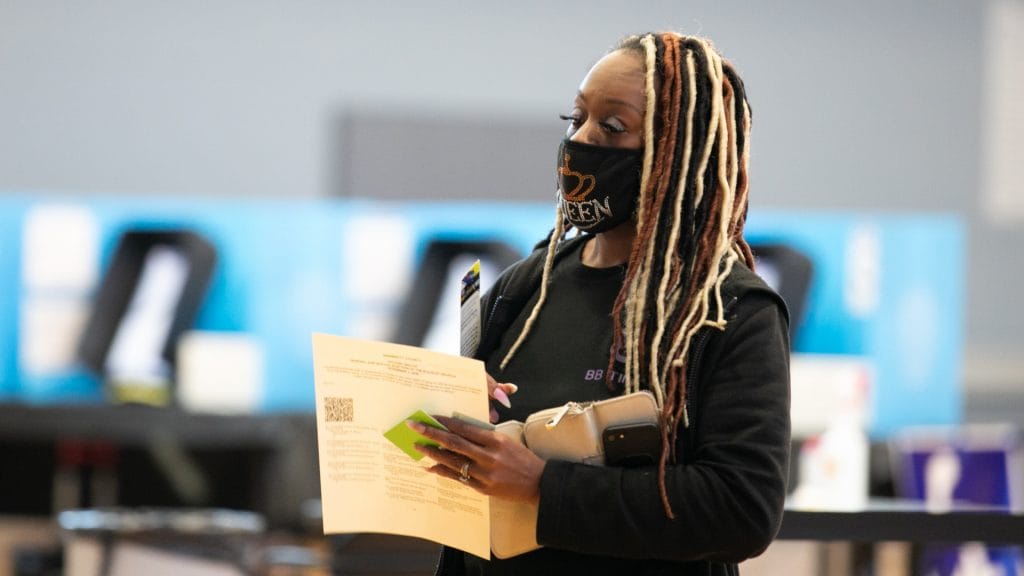
An administration official says they can feel that.
Cora Masters Barry was visibly shaken in the Hart Senate Building on Thursday. She was seen wiping tears from her eyes just after her fellow demonstrators were taken into custody by Capitol Police.
“I am mad because I am 76 years old and I was out there fighting for their 1965 Voting Rights Act,” Masters Barry emphasized on Friday at the White House. “We got it and here I am. I just don’t understand why we are here.”
A high-ranking White House source tells theGrio that the administration has not given up hope that the voting rights bills — the For The People Act and the John Lewis Voting Rights Act — can be passed. But first, White House officials hope congressional lawmakers will start writing H.R. 4, the bill named in Lewis’ honor.
Have you subscribed to theGrio’s “Dear Culture” podcast? Download our newest episodes now!
TheGrio is now on Apple TV, Amazon Fire and Roku. Download theGrio.com today!


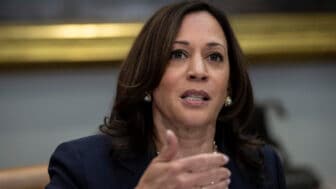
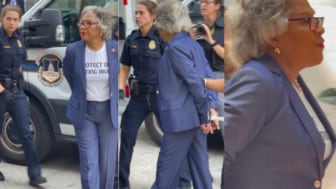








More Stories
‘It’s rolling back and rolling back’: What Black fashion leaders are saying about DEI – Glossy
15 Celebrities Who Graduated from Historically Black Colleges & Universities – EBONY
Latinx, black college students leave STEM majors more than white students – Inside Higher Ed